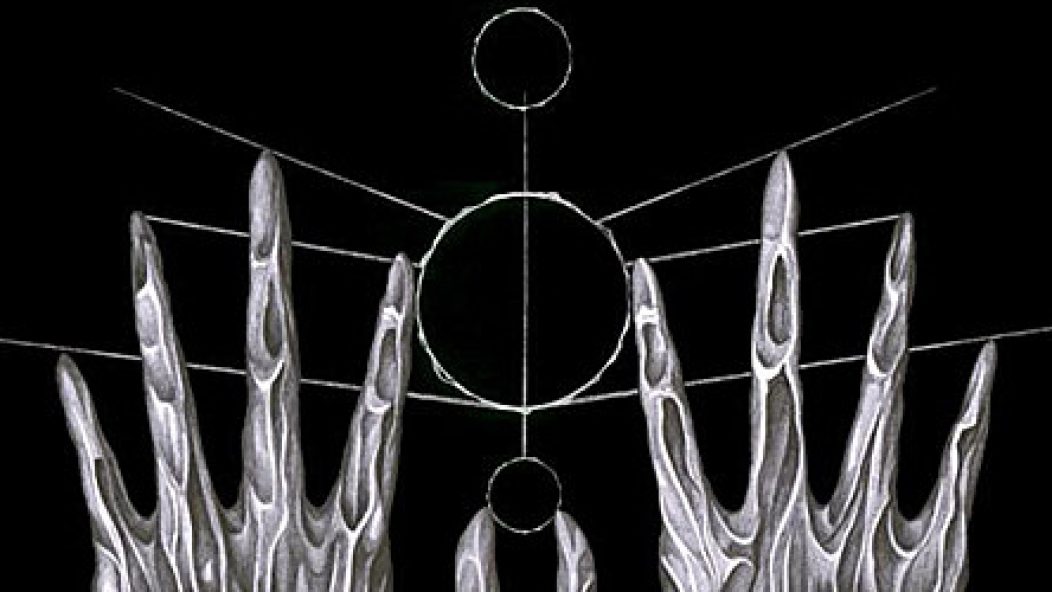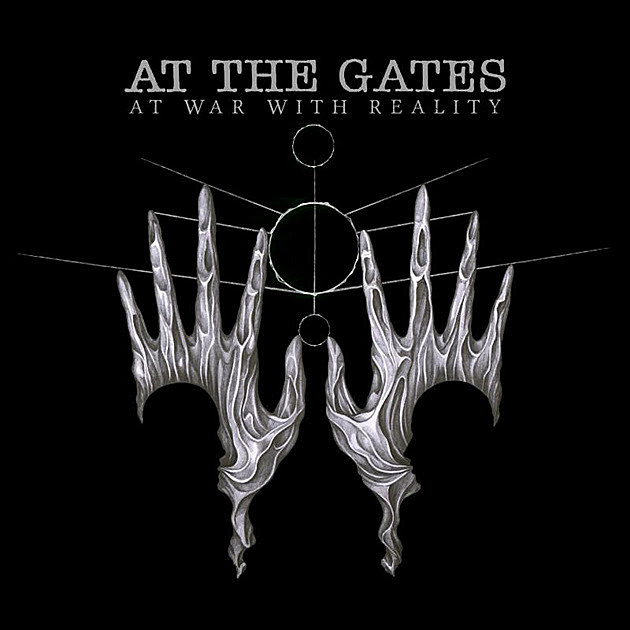
At The Gates - At War With Reality

…
Classic and underground death metal bands have been disbanding and reuniting for virtually the entire span of the genre’s existence. Half of the most powerful death metal groups I can think of were themselves spawned from the ashes of another group. These outfits die, and then live again, almost endlessly. Just as Mantas died so that Death might live, so did Grotesque die so that At The Gates could live. At The Gates died. The Haunted lived, so did Lock Up and Disfear, for a time. In 2011, Disfear bassist Henrik Frykman died, and with him probably so did Disfear. At the Gates’s 2014 comeback album, their first in 19 years, At War With Reality is dedicated to Frykman. At The Gates had been re-united before and during Frykman’s battle with cancer—the band was alive while he was, but as an artistic entity maybe his death is what allowed At The Gates to begin the act of living.
The tragedy of a legacy act is that to only relive one’s past over and over perpetually is a kind of death. Legacy acts that play the hits over and over but never record new music are museum pieces—that is to say the bands and their concerts become objects for we listeners to project our own emotions upon. They are inert, and incapable of pressing back at us, arguing with us or surprising us… in other words unable of doing all the things that active music listeners fall in love with bands for. In retrospect that’s ultimately what damns Metallica’s Death Magnetic, that it is so openly a signpost to their past, desperately trying to seem like a classic but completely wrapped up in the modern world that created it—a Hello Kitty Faberge egg. At War With Reality is not that. It’s the childhood daydream where the museum comes to life, if only for a short time.
Is At War With Reality as good as Slaughter of the Soul? That’s a flawed metric of judgment. Sadly it’s also the only one that matters. That At The Gates broke up following the release of Slaughter of the Soul is death metal’s ultimate mic drop. That literally twenty years of bands tried to mimic their formula and pilot it to mainstream success—and that some succeeded—only makes it stronger. Its hype is insurmountable. I won’t do At War With Reality the injustice of comparing it further. It could be a hundred times better and still mean less. I will say this, however: these are vocalist Tomas “Tompa” Lindberg’s best lyrics ever. Lurid, imaginative and poetic, they are one area in which At The Gates have clearly improved.
Is At War With Reality as good as Surgical Steel? Now there’s the interesting question. To me, Carcass’ resurrection knockout is not only the high water mark for comeback albums in general, but also the more logical predecessor to At War With Reality in the sense that I’m not sure the latter would exist without the former. The former was also my favorite album of last year. Is At War With Reality my favorite album this year? No, not yet.
It’s a slippery album, more interested in surprises than satisfaction. Would you believe me when I say it opens with Anton Reisenegger of Criminal and Lock Up reciting, in Spanish, a passage from Argentinian novelist Ernesto Sabato’s Sobre Héroes y Tumbas? Or that its single, the title track, is not only unlike the remainder of the album but also the only truly thrashy number? Everything At The Gates have said about the record in interviews this past year is true: it’s more like Terminal Spirit Disease than any other album in any of the members’ discography, and the lyrics are fixated on magical realism, with several quotes from celebrated authors including Borges. Lindberg shies away from the big vocal hooks that he employed so well in the past, seemingly on purpose. The melodies, of which there are plenty, feel abstracted and obscure. There’s no string section or quiet bit to offer reprieve to the casual listener, aside from instrumental “City of Mirrors.” Title track excluded, all the catchy, more driving songs are crowded at the back-end of the record, including “Eater of Gods,” my favorite track. It won’t convince people already predisposed against this style of music to suddenly believe in this band, but it might give their fans pause. In their recent Decibel Hall of Fame feature, Lindberg said he thought of At The Gates as “red wine death metal.” Here that wine is a dry Argentine merlot, the color of oxblood, one that gets your head swimming. At War With Reality is the least accessible album At The Gates have ever done. It’s bold, and I applaud it for that.
I applaude it further for its polish and execution. The record sounds excellent, and its finishing is immaculate. I’ve seen the booklet, and its artwork is spectacular and iconic. Even the fonts are great—I don’t think I’ve ever nerded about fonts before. None of these pieces factor into the music itself, but they speak to the amount of care and attention to detail that went into every piece of the At War With Reality experience. There’s a reason why great restaurants pay attention to plating and garnishes—they’re signifiers for levels of artistry. They can’t hide a bad piece of art, but they can augment the experience of a good one, and that’s the case here. The people involved in this project knew that it would be not only quality, but for a small group of people, important. They were right. People died, in a roundabout way, so you can listen to this record.
Is At War With Reality worth listening to? Damn straight it is.
…
…










